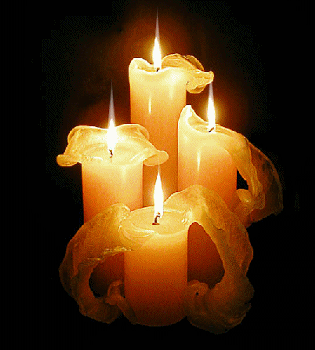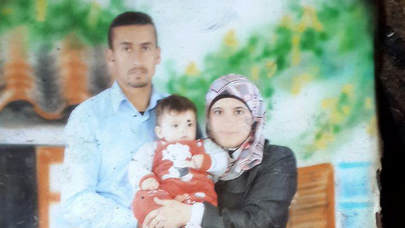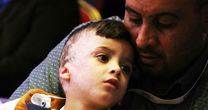9 jan 2019
|
|
Day after another, systematic terrorism by Israeli settlers against Palestinian citizens and their property in the occupied West Bank especially in the northern West Bank is escalating, with an official sponsorship from the Israeli government and the absence of any role for the Palestinian Authority.
The crime of burning alive the Dawabsha family in the town of Duma south of Nablus in 2015 and the murder of Aisha al-Rabi, near Za'tara checkpoint in 2018, are part of a long series of attacks and crimes committed by Israeli settlers, where the perpetrators enjoy impunity. Religious decree to protect settler terrorism |
The latest manifestation of the blatant complicity with the Israeli terrorists, according to a report by the Center for Freedom News, is the issuance of a religious decree by Jewish rabbis recently aimed at providing religious cover for the Israeli extremists who violated the sanctity of the Sabbath according to Jewish religious law, to help the perpetrators of the murder of Aisha al-Rabi.
Settlers from the settlement of Yitzhar, located in southern Nablus, traveled to the settlement of Rahalim, southeast of the city, to teach the boys at the religious institute of Beri Ha-Haaretz how to act during their interrogation following the killing of Aisha al-Rabi.
The Shabak announced that five youths from the institute were arrested on suspicion of being behind the killing of al-Rabi on Friday, October 10, after they threw stones at a car driven by her husband, which caused her a head injury and eventually led to her death.
The religious decree was part of the so-called Jewish law of ‘saving the soul,’ meaning allowing a group of ultra-extremist settlers to travel by car from Yitzhar settlement to the settlement of Rahalim on Saturday, the day after the murder of the rabbi (to protect the Jewish murderers who killed the Palestinian woman).
The group was headed by Meir Ettinger, known as the leader of an extremist group, the grandson of the late Rabbi Meir Kahane, and one of the suspects of the arson attack on the Dawabsha family.
The sources revealed that the purpose of the group’s visit was to guide the suspects in the killing of al-Rabi how to act during the investigation, if arrested.
The decree was signed by a number of rabbis, including Dov Lior, Yehoshua Schmiden and Shavei Shomron, who are known for their support for Israeli terrorism.
The rabbis did not only provide religious support for those involved in the crimes and their aides but also criticized the Shabak for allegedly torturing the five young settlers.
Accomplice legal system
The developments of the case of martyr al-Rabi, a few days after the new developments in the trial of the killers of the Dawabsha family, revealed the complicity of the Israeli judiciary in covering up the killers.
At the beginning of the new year, the Israeli occupation court rejected the confession of a settler involved in the killing and burning alive of the Dawabsha family and other attacks, including the burning of a church in Jerusalem, as part of a Jewish terrorist group.
The Haaretz newspaper noted that the settler confessed his involvement in murder and arson, in addition to the destruction of property, but the court acquitted him of the charge of murder.
The court judges refused to accept the confession of the settler, after his defense team claimed that he was under severe pressure from the Shabak investigators to confess, which weakened the prosecution’s position and made them drop his conviction.
Dawabsha family
In June last year, an Israeli military court rejected the confessions of three settlers who took part in the killing of the Dawabsha family and accepted only some confessions regarding the formation of a cell for Jewish terrorism.
Unstoppable terrorism
If the crimes of the Dawabsha and al-Rabi families are so horrendous that the occupation was forced to open an investigation in order to withdraw any pretexts for an international investigation, even if the chances of punishing the murderers are weak, hundreds of crimes and attacks committed by Israeli settlers each year take place with full impunity.
In recent months, the cameras of Palestinian citizens have documented numerous attacks by settlers on the West Bank roads and at checkpoints, at the sight of Israeli soldiers, without arresting or even preventing them.
Settlers from the settlement of Yitzhar, located in southern Nablus, traveled to the settlement of Rahalim, southeast of the city, to teach the boys at the religious institute of Beri Ha-Haaretz how to act during their interrogation following the killing of Aisha al-Rabi.
The Shabak announced that five youths from the institute were arrested on suspicion of being behind the killing of al-Rabi on Friday, October 10, after they threw stones at a car driven by her husband, which caused her a head injury and eventually led to her death.
The religious decree was part of the so-called Jewish law of ‘saving the soul,’ meaning allowing a group of ultra-extremist settlers to travel by car from Yitzhar settlement to the settlement of Rahalim on Saturday, the day after the murder of the rabbi (to protect the Jewish murderers who killed the Palestinian woman).
The group was headed by Meir Ettinger, known as the leader of an extremist group, the grandson of the late Rabbi Meir Kahane, and one of the suspects of the arson attack on the Dawabsha family.
The sources revealed that the purpose of the group’s visit was to guide the suspects in the killing of al-Rabi how to act during the investigation, if arrested.
The decree was signed by a number of rabbis, including Dov Lior, Yehoshua Schmiden and Shavei Shomron, who are known for their support for Israeli terrorism.
The rabbis did not only provide religious support for those involved in the crimes and their aides but also criticized the Shabak for allegedly torturing the five young settlers.
Accomplice legal system
The developments of the case of martyr al-Rabi, a few days after the new developments in the trial of the killers of the Dawabsha family, revealed the complicity of the Israeli judiciary in covering up the killers.
At the beginning of the new year, the Israeli occupation court rejected the confession of a settler involved in the killing and burning alive of the Dawabsha family and other attacks, including the burning of a church in Jerusalem, as part of a Jewish terrorist group.
The Haaretz newspaper noted that the settler confessed his involvement in murder and arson, in addition to the destruction of property, but the court acquitted him of the charge of murder.
The court judges refused to accept the confession of the settler, after his defense team claimed that he was under severe pressure from the Shabak investigators to confess, which weakened the prosecution’s position and made them drop his conviction.
Dawabsha family
In June last year, an Israeli military court rejected the confessions of three settlers who took part in the killing of the Dawabsha family and accepted only some confessions regarding the formation of a cell for Jewish terrorism.
Unstoppable terrorism
If the crimes of the Dawabsha and al-Rabi families are so horrendous that the occupation was forced to open an investigation in order to withdraw any pretexts for an international investigation, even if the chances of punishing the murderers are weak, hundreds of crimes and attacks committed by Israeli settlers each year take place with full impunity.
In recent months, the cameras of Palestinian citizens have documented numerous attacks by settlers on the West Bank roads and at checkpoints, at the sight of Israeli soldiers, without arresting or even preventing them.
5 jan 2019
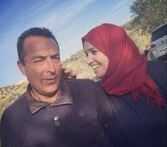
The Israeli Rishon Lezion courthouse, on Monday, heard the case of 3 minors suspected of a 2015 firebombing attack in Duma village, southeast of the northern West Bank city of Nablus.
The terrorist attack, in which right-wing Israeli extremists set fire to the Dawabsha family home, by throwing a firebomb inside, resulted in the death of 18-month-old Ali Saad Dawabsha. The fire also severely injured the baby’s 4-year-old brother Ahmad, and his mother and father, both of whom later died, leaving only Ahmad.
The words ‘price tag’ were spray-painted, in Hebrew, on the home of Sa’ad and Reham Dawabsha, which is a common phrase used by Israeli extremists to intimidate Palestinians, implying that the attacks are the price which they, the Palestinians, must pay to exist.
20 Israeli extremists, in support of the suspects, became violent with police outside the courthouse, resulting in some of the extremists being thrown to the ground and detained by police, the Jerusalem Post reported.
Israeli attacks against Palestinians almost doubled in 2018, as compared to 2017. Additionally, there have been a number of these so-called ‘price-tag’ vandalism incidents that remain unsolved.
One such savage attack in particular was the October 12, 2018 stoning death of 47-year -old Palestinian mother Aisha Mohammad al-Rabi, in which Israeli settlers threw a number of large rocks at her car, smashing the windshield and hitting Aisha in the cheek and ear, killing her almost instantly.
Aisha, who had just completed her university education before she was killed, is survived by her husband and 8 children, the youngest of whom is 8 years.
The terrorist attack, in which right-wing Israeli extremists set fire to the Dawabsha family home, by throwing a firebomb inside, resulted in the death of 18-month-old Ali Saad Dawabsha. The fire also severely injured the baby’s 4-year-old brother Ahmad, and his mother and father, both of whom later died, leaving only Ahmad.
The words ‘price tag’ were spray-painted, in Hebrew, on the home of Sa’ad and Reham Dawabsha, which is a common phrase used by Israeli extremists to intimidate Palestinians, implying that the attacks are the price which they, the Palestinians, must pay to exist.
20 Israeli extremists, in support of the suspects, became violent with police outside the courthouse, resulting in some of the extremists being thrown to the ground and detained by police, the Jerusalem Post reported.
Israeli attacks against Palestinians almost doubled in 2018, as compared to 2017. Additionally, there have been a number of these so-called ‘price-tag’ vandalism incidents that remain unsolved.
One such savage attack in particular was the October 12, 2018 stoning death of 47-year -old Palestinian mother Aisha Mohammad al-Rabi, in which Israeli settlers threw a number of large rocks at her car, smashing the windshield and hitting Aisha in the cheek and ear, killing her almost instantly.
Aisha, who had just completed her university education before she was killed, is survived by her husband and 8 children, the youngest of whom is 8 years.
1 jan 2019
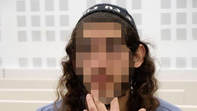
Judge slams behavior of investigators after police set up a fake prison cell, pretended to be inmates and even planted drugs in his bed in an effort to secure a confession from the young settler
The Central District Court in Lod on Tuesday threw out a confession given by an Israeli minor detained as part of a far-reaching investigation into Jewish terrorism, on the grounds that it was extracted by unlawful means and under duress.
The teen has been charged with several racially motivated offenses, including arson and damage to property in a 2013 attack at the Abbey of the Dormition in Jerusalem. During the attack, graffitti reading "Christians are monkeys" and “Christians are slaves" was sprayed on the walls of the church.
The youth was also questioned on suspicion of involvement in the deadly Duma terror attack of 2015, in which three members of a Palestinian family died in a fire started by Jewish extremists at their West Bank home. The court, however, found he was not involved in the attack.
The decision to throw out the teen's testimony was made after his attorney, Itamar Ben-Gvir, argued that the Shin Bet domestic security service and the police unlawfully obtained the confession from his client, who admitted to carrying out the hate crimes while he was in custody in Acre.
On Thursday, the investigative television program Fact reported that the youth had been placed in a fake prison cell in Acre Prison, while policemen disguised as his cellmates applied massive pressure on him to confess to his actions, including stopping him from sleeping and eating.
One of the policemen played the role of a prisoner serving a murder sentence, and officers even planted fake drugs under his mattress to pressure him.
Ben-Gvir argued in court that a red line had been crossed and that unacceptable investigative measures had been used to get the confession.
Throwing out the confession, Judge Michal Brandt called the behavior of the police “unfair, to say the least, as well as offensive and threatening,” the Times of Israel reported.
Ben-Gvir praised the court's decision, saying his client had been denied his basic rights.
"This is an important day for Israeli democracy. The time has come for the Shin Bet and the police to know that the Hilltop Youth (young exteme-right settlers) also have basic rights. All red lines have been crossed in this investigation. I'm glad the court accepted our claim and disqualified the confession," Ben-Gvir said.
The Central District Prosecutor's Office said in a statement that they may rethink their strategy in light of the ruling.
"The defendant was charged with severe offenses, whose ramifications are also felt in internationally. The police and Shin Bet used measures they believed to be within the boundaries of the law. The court rejected the confession given by the minor under these conditions, and we will thoroughly review the court's decision and consider our future actions."
The Central District Court in Lod on Tuesday threw out a confession given by an Israeli minor detained as part of a far-reaching investigation into Jewish terrorism, on the grounds that it was extracted by unlawful means and under duress.
The teen has been charged with several racially motivated offenses, including arson and damage to property in a 2013 attack at the Abbey of the Dormition in Jerusalem. During the attack, graffitti reading "Christians are monkeys" and “Christians are slaves" was sprayed on the walls of the church.
The youth was also questioned on suspicion of involvement in the deadly Duma terror attack of 2015, in which three members of a Palestinian family died in a fire started by Jewish extremists at their West Bank home. The court, however, found he was not involved in the attack.
The decision to throw out the teen's testimony was made after his attorney, Itamar Ben-Gvir, argued that the Shin Bet domestic security service and the police unlawfully obtained the confession from his client, who admitted to carrying out the hate crimes while he was in custody in Acre.
On Thursday, the investigative television program Fact reported that the youth had been placed in a fake prison cell in Acre Prison, while policemen disguised as his cellmates applied massive pressure on him to confess to his actions, including stopping him from sleeping and eating.
One of the policemen played the role of a prisoner serving a murder sentence, and officers even planted fake drugs under his mattress to pressure him.
Ben-Gvir argued in court that a red line had been crossed and that unacceptable investigative measures had been used to get the confession.
Throwing out the confession, Judge Michal Brandt called the behavior of the police “unfair, to say the least, as well as offensive and threatening,” the Times of Israel reported.
Ben-Gvir praised the court's decision, saying his client had been denied his basic rights.
"This is an important day for Israeli democracy. The time has come for the Shin Bet and the police to know that the Hilltop Youth (young exteme-right settlers) also have basic rights. All red lines have been crossed in this investigation. I'm glad the court accepted our claim and disqualified the confession," Ben-Gvir said.
The Central District Prosecutor's Office said in a statement that they may rethink their strategy in light of the ruling.
"The defendant was charged with severe offenses, whose ramifications are also felt in internationally. The police and Shin Bet used measures they believed to be within the boundaries of the law. The court rejected the confession given by the minor under these conditions, and we will thoroughly review the court's decision and consider our future actions."
25 nov 2018

Yinon Reuveni, who is serving 5.5-year prison sentence for setting fire to the Church of Loaves and Fishes in 2015, expresses remorse for his actions in an effort to ease his conditions; 'I understand the many mistakes I made along the way,' he writes.
Yinon Reuveni, who is serving a 5.5-year sentence in prison for setting fire to the Church of Loaves and Fishes in 2015, has made an unusual confession and expressed remorse for his crime in an effort to ease his conditions.
The Jewish settler was initially sentenced to four years in prison. He appealed the ruling to the High Court of Justice, which decided to increase his sentence to five-and-a-half years.
Reuveni wrote a letter two months ago, which has only just come to light, expressing remorse. "The years that have passed gave me a lot of time to think, and today I'm in a different place," Reuveni wrote.
"I understand the many mistakes I made along the way, I understand I was with the wrong company, I understand I was pushing the boundaries of the gray area, including by breaking administrative orders," he continued. "Today I see things differently than when I was a teenager, I know reality is more complex and life is not black and white. I caused suffering to my parents, my family, and those around me, and mostly I did a disservice to myself."
A year ago, Reuveni got married in prison at a small wedding that included only first-degree relatives. Since then, he has been asking the Israel Prison Service (IPS) to ease his strict imprisonment conditions so he could have a relationship with his wife.
"There are a lot of examples of Hilltop Youth who were in one place and, after having started a family, are now in a different place," Reuveni wrote, referring to extremist right-wing settler youth who live in illegal outposts. "They became productive members of society, and that is exactly what I want to be. I love the state and the people. I got here because I didn't think enough. Today I still love this country and want to be loyal to the homeland and follow the laws of the State of Israel."
Reuveni was also questioned in connection with the Duma arson affair and the murder of the Dawabsheh family, and on suspicions of additional Jewish terror offenses. He was one of the top targets of the Shin Bet's Jewish Division.
Reuveni was, until recently, both a prisoner and a detainee. His legal status changed after the district court ordered to release him from detainment as part of a price tag case against him, and now he remains only a prisoner. Reuveni and his family hope the change in legal status would mean a change in his conditions.
"Now his legal status is similar to that of many other Jewish security prisoners who are imprisoned in religious wings and are allowed phone calls and visits from their families," one of Reuveni's relatives explained. "There's no reason Yinon can't have the same conditions. We hope the cruelty towards him ends. He got married, he wants to start a new life, to be rehabilitated and start a family. There's no reason why he shouldn't be allowed that."
The Church of Loaves and Fishes, which is run by the Order of Saint Benedict, is considered one of the most important churches in Israel. Christians believe the church is built on the site where Jesus performed the Miracle of the Multiplication of the Loaves and the Fishes. It is a traditional site of pilgrimage in the Holy Land.
In June 2015, Reuveni and several others torched the church, causing extensive damage to two rooms and the structure's exterior. Reuveni also defaced the limestone wall with red paint denouncing the worship of idols.
Yinon Reuveni, who is serving a 5.5-year sentence in prison for setting fire to the Church of Loaves and Fishes in 2015, has made an unusual confession and expressed remorse for his crime in an effort to ease his conditions.
The Jewish settler was initially sentenced to four years in prison. He appealed the ruling to the High Court of Justice, which decided to increase his sentence to five-and-a-half years.
Reuveni wrote a letter two months ago, which has only just come to light, expressing remorse. "The years that have passed gave me a lot of time to think, and today I'm in a different place," Reuveni wrote.
"I understand the many mistakes I made along the way, I understand I was with the wrong company, I understand I was pushing the boundaries of the gray area, including by breaking administrative orders," he continued. "Today I see things differently than when I was a teenager, I know reality is more complex and life is not black and white. I caused suffering to my parents, my family, and those around me, and mostly I did a disservice to myself."
A year ago, Reuveni got married in prison at a small wedding that included only first-degree relatives. Since then, he has been asking the Israel Prison Service (IPS) to ease his strict imprisonment conditions so he could have a relationship with his wife.
"There are a lot of examples of Hilltop Youth who were in one place and, after having started a family, are now in a different place," Reuveni wrote, referring to extremist right-wing settler youth who live in illegal outposts. "They became productive members of society, and that is exactly what I want to be. I love the state and the people. I got here because I didn't think enough. Today I still love this country and want to be loyal to the homeland and follow the laws of the State of Israel."
Reuveni was also questioned in connection with the Duma arson affair and the murder of the Dawabsheh family, and on suspicions of additional Jewish terror offenses. He was one of the top targets of the Shin Bet's Jewish Division.
Reuveni was, until recently, both a prisoner and a detainee. His legal status changed after the district court ordered to release him from detainment as part of a price tag case against him, and now he remains only a prisoner. Reuveni and his family hope the change in legal status would mean a change in his conditions.
"Now his legal status is similar to that of many other Jewish security prisoners who are imprisoned in religious wings and are allowed phone calls and visits from their families," one of Reuveni's relatives explained. "There's no reason Yinon can't have the same conditions. We hope the cruelty towards him ends. He got married, he wants to start a new life, to be rehabilitated and start a family. There's no reason why he shouldn't be allowed that."
The Church of Loaves and Fishes, which is run by the Order of Saint Benedict, is considered one of the most important churches in Israel. Christians believe the church is built on the site where Jesus performed the Miracle of the Multiplication of the Loaves and the Fishes. It is a traditional site of pilgrimage in the Holy Land.
In June 2015, Reuveni and several others torched the church, causing extensive damage to two rooms and the structure's exterior. Reuveni also defaced the limestone wall with red paint denouncing the worship of idols.
1 aug 2018
He always asks about his brother’s toy car and his belongings. He always asks about his parents.”
“Ahmad has not yet started his cosmetic treatment journey. He needs about eight years from now. His first cosmetic surgery is set on August 8, 2018, the date of his father’s death,” Ahmad’s grandmother noted.
The family maintains its position of demanding the punishment of the killers of its members and bringing the Israeli government and army accountable because the settlers carried out the crime under their protection, as the family asserts.
The Dawabsha family brought two cases in the courts against the Israeli settlers and government; the first was against the settlers who planned and carried out the crime and it is being considered by the Central Court of Lod and a case of compensation against the Israeli government and army at the Nazareth District Court.
The court dropped the confessions of the second defendant on the grounds that his confessions were extracted under torture and his defense team demanded that he should be released and placed under house arrest because he was a minor at the time of arrest.
The court said that “the minor was not directly involved in the murder, but he had ideas and intent to kill and had already committed racially motivated crimes against the Palestinians.”
Although the Israeli public prosecution is preparing to appeal to the Supreme Court against the decision to release the minor, Nasr Dawabsha insists that the family has decided to boycott the Israeli judiciary, as the trial sessions are viewed as staged scenarios and exchanging roles between the institutions of the occupation state, which were never fair, and had never been just to the Palestinian people when it comes to the crimes committed by the occupation army and settler groups.
“Ahmad has not yet started his cosmetic treatment journey. He needs about eight years from now. His first cosmetic surgery is set on August 8, 2018, the date of his father’s death,” Ahmad’s grandmother noted.
The family maintains its position of demanding the punishment of the killers of its members and bringing the Israeli government and army accountable because the settlers carried out the crime under their protection, as the family asserts.
The Dawabsha family brought two cases in the courts against the Israeli settlers and government; the first was against the settlers who planned and carried out the crime and it is being considered by the Central Court of Lod and a case of compensation against the Israeli government and army at the Nazareth District Court.
The court dropped the confessions of the second defendant on the grounds that his confessions were extracted under torture and his defense team demanded that he should be released and placed under house arrest because he was a minor at the time of arrest.
The court said that “the minor was not directly involved in the murder, but he had ideas and intent to kill and had already committed racially motivated crimes against the Palestinians.”
Although the Israeli public prosecution is preparing to appeal to the Supreme Court against the decision to release the minor, Nasr Dawabsha insists that the family has decided to boycott the Israeli judiciary, as the trial sessions are viewed as staged scenarios and exchanging roles between the institutions of the occupation state, which were never fair, and had never been just to the Palestinian people when it comes to the crimes committed by the occupation army and settler groups.
12 july 2018
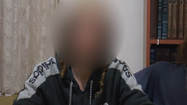
Putting end to more than 2 years under arrest, judge orders the unidentified minor, who was indicted for his involvement in a 2015 firebombing that claimed three Palestinian lives, to wear an electronic bracelet and not to leave Israel.
The Lod District Court ordered police Thursday morning to release a minor who was indicted for his involvement in a terror attack in which three members of the Dawabsheh family in the Palestinian village of Duma in 2015 were killed.
The teen, who was 17 at the time of the attack and who has been under arrest for more than two years, will be released and placed under full house arrest. He was indicted for conspiring to commit a murder but not of the murder itself. He was also indicted for a string of other unrelated crimes.
It is currently believed that the unnamed suspect did not take part in the actual firebombing but was involved in its planning.
The Judge, Ami Kobo, ruled that the teenager would be placed under permanent supervised house arrest and would be obliged to wear an electronic bracelet. The defendant will also be forbidden from leaving Israel.
On July 31, 2015, Molotov cocktails were thrown at the Dawabsheh family's house in the village in the northern West Bank, killing an 18-month-old child, Ali, and critically wounded a four-year-old brother and both parents. The parents, Saad and Riham Dawabsheh later succumbed to their wounds.
While Kobo will not participate in the final verdict, he argued during discussions on the matter that the evidence against the teenager relating to the indictments served against him in the murder of the family was weakened, as was the evidence implicating him in an arson attack on a church. Regarding his membership in a terror organization, however, Kobo said that the evidence remains robust.
Hussein Dawabsheh, the grandfather of the baby who was killed in the attack expressed his outrage at the decision. “We have gone through a tough day. I feel like I did on the same day I saw Ali burned. He should stay in prison for his whole life,” he said, vowing to take the matter to the Supreme Court.
Almost a month ago, the Lod District Court ruled that the majority of confessions given by the two alleged Jewish terrorists are admissible, bar those which were obtained under duress or by “special means” by the Shin Bet.
Another confession given by the minor on Duma “hypothetically”—without mentioning of names, but with a general description of the act—will also remain admissible. All of the other confessions he provided were disqualified, even if there was no force involved in their extraction.
In January 2016 an indictment was submitted against the central defendant in the case, Amiram Ben-Uliel, a resident of an outpost near Shila who at the time of the attack was 21 years old.
Ben-Uliel stands accused of three counts of murder in the firebombing and two counts of attempted murder, arson, and conspiracy to commit a racially-motivated crime.
The Central District Court said last month that it would consider a request to release the minor. Lawyers representing him asked the court to consider granting him release after the Lod District Court ruled days before on the inadmissability of the some of the confessions given in the Shin Bet-led investigation.
The Lod District Court ordered police Thursday morning to release a minor who was indicted for his involvement in a terror attack in which three members of the Dawabsheh family in the Palestinian village of Duma in 2015 were killed.
The teen, who was 17 at the time of the attack and who has been under arrest for more than two years, will be released and placed under full house arrest. He was indicted for conspiring to commit a murder but not of the murder itself. He was also indicted for a string of other unrelated crimes.
It is currently believed that the unnamed suspect did not take part in the actual firebombing but was involved in its planning.
The Judge, Ami Kobo, ruled that the teenager would be placed under permanent supervised house arrest and would be obliged to wear an electronic bracelet. The defendant will also be forbidden from leaving Israel.
On July 31, 2015, Molotov cocktails were thrown at the Dawabsheh family's house in the village in the northern West Bank, killing an 18-month-old child, Ali, and critically wounded a four-year-old brother and both parents. The parents, Saad and Riham Dawabsheh later succumbed to their wounds.
While Kobo will not participate in the final verdict, he argued during discussions on the matter that the evidence against the teenager relating to the indictments served against him in the murder of the family was weakened, as was the evidence implicating him in an arson attack on a church. Regarding his membership in a terror organization, however, Kobo said that the evidence remains robust.
Hussein Dawabsheh, the grandfather of the baby who was killed in the attack expressed his outrage at the decision. “We have gone through a tough day. I feel like I did on the same day I saw Ali burned. He should stay in prison for his whole life,” he said, vowing to take the matter to the Supreme Court.
Almost a month ago, the Lod District Court ruled that the majority of confessions given by the two alleged Jewish terrorists are admissible, bar those which were obtained under duress or by “special means” by the Shin Bet.
Another confession given by the minor on Duma “hypothetically”—without mentioning of names, but with a general description of the act—will also remain admissible. All of the other confessions he provided were disqualified, even if there was no force involved in their extraction.
In January 2016 an indictment was submitted against the central defendant in the case, Amiram Ben-Uliel, a resident of an outpost near Shila who at the time of the attack was 21 years old.
Ben-Uliel stands accused of three counts of murder in the firebombing and two counts of attempted murder, arson, and conspiracy to commit a racially-motivated crime.
The Central District Court said last month that it would consider a request to release the minor. Lawyers representing him asked the court to consider granting him release after the Lod District Court ruled days before on the inadmissability of the some of the confessions given in the Shin Bet-led investigation.
